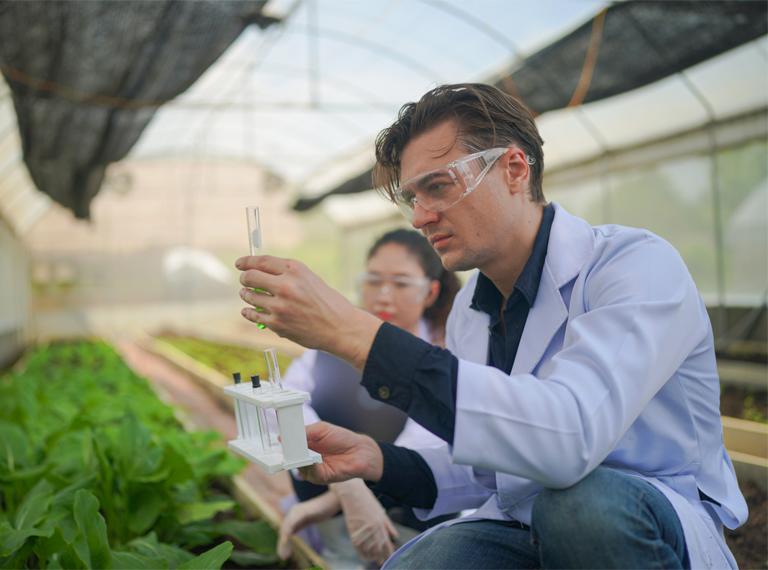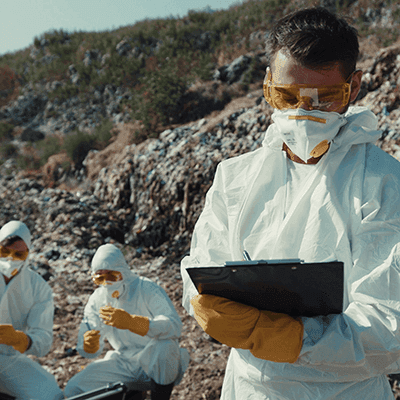As the world faces increasing environmental challenges, the need to adopt greener and more sustainable practices has become even more important.
Chemical and biotech companies, often labelled as major contributors to global environmental issues, must take proactive steps to reduce their carbon footprint, minimise waste, and promote a new wave of sustainable innovation across the UK.
Investment in the sector has also continued to grow over the past few years, with Greater Manchester Combined Authority recently investing £2 million to create a range of green jobs to support biotech research facilities. By embracing green practices, companies in this sector not only contribute to environmental preservation, but also enhance the overall reputation of the industry in a socially-conscious market.
Here are some areas that both chemical and biotech companies can prioritise to become greener and more sustainable.
Embrace green chemistry principles
Green chemistry, which focuses on chemical processes and products that reduce or eliminate hazardous substances, energy consumption, and waste generation, is a key component to a sustainable future for heavy industries.
Chemical and biotech companies are encouraged to adopt green chemistry principles in their research, development, and production processes, including the use of renewable feedstocks, optimising reaction conditions to reduce energy usage, and designing products that are safer and less harmful to the environment.
The whole process behind replacing toxic substances with greener alternatives will help generate products that have a lower environmental impact, while promoting the principles of green chemistry across the industry through partnerships, best practice and knowledge-sharing, will further advance sustainability efforts.
Implement sustainable supply chain practices
Companies should take the time to analyse their supply chain methods to identify opportunities for ongoing improvements when it comes to sustainability.
Working with trusted suppliers who prioritise environmental responsibility and ethical practices is essential, as complying with up-to-date sustainability standards and reducing emissions can lead to a more prosperous future for the business, alongside heightening a company’s reputation at the same time.
Reducing environmental impact should be a top priority for every business. For example, when reviewing transportation, which produced 24% of the UK’s total greenhouse gas emissions in 2020, companies could opt for regional and localised sourcing options and prioritise suppliers who follow eco-friendly transportation practices which could lead to cost savings and a smaller carbon footprint.
Reduce energy consumption and emissions
Energy-intensive processes, which are the second largest global source of CO2 emissions, are common in both the chemical and biotech industries.
Implementing energy-saving technologies and practices can significantly reduce carbon footprints, as businesses can conduct energy audits to identify areas of high consumption and inefficiencies, and implement targeted improvements.
Investing in renewable energy sources such as solar, wind, and/or biogas for day-to-day operations and project work can lead to substantial emission reductions, while participating in carbon offset programmes can help compensate for unavoidable emissions, helping to promote a net-zero or carbon-neutral status.
Enhance waste management and recycling
Efficient and effective waste management, for many years, has been one of the main ways to create and maintain sustainable operations. Adopting resource management practices across the entire business should become standard practice.
At the same time, much can be done at ground level by employees. Encouraging staff to care about their environmental footprint in the workplace can help minimise waste, and has a better chance of success when green alternatives are provided.
Consider offering relevant training and tools to facilitate this –plus incentives to take up cycle-to-work schemes and meet communal green goals. This can contribute to a waste-conscious culture, which will improve the company’s reputation and help to attract and retain talent.
Companies in this space should also explore different recycling and reprocessing options for by-products and waste streams. This can be done by collaborating with other industries to find innovative uses for their waste materials, reducing landfill disposal and preserving natural resources.
Invest in research for sustainable solutions
To stay at the forefront of sustainability, chemical and biotech companies must continue investing in research and development for greener alternatives. This could include developing bio-based chemicals, biodegradable materials, and environmentally-friendly production processes that help the local area.
Not one business is in this alone – working alongside other industry leaders can enhance best practice not just for the sector, but the entire UK ecosystem. Collaboration with universities, research institutions, and environmental organisations can uncover new sustainable solutions and technologies.
Final considerations
It’s important to act, through external collaboration and the creation of internal teams and steering groups. Time can be dedicated in-house to sustainability and innovation efforts, focusing on developing more eco-friendly products and processes for the business, alongside updating and adapting company policies.
Companies can also participate in government-led sustainability initiatives and adhere to industry-specific certifications and standards. These actions demonstrate commitment to sustainability and can lead to market advantages, including attracting the best staff and enticing new clients.
By taking a proactive approach to sustainability, companies in this sector can make a significant and positive impact on the environment, while also ensuring long-term success in a world that increasingly values eco-conscious practices.
Looking for your next hire or considering your next career move in the scientific space? Contact our specialist consultants today.




